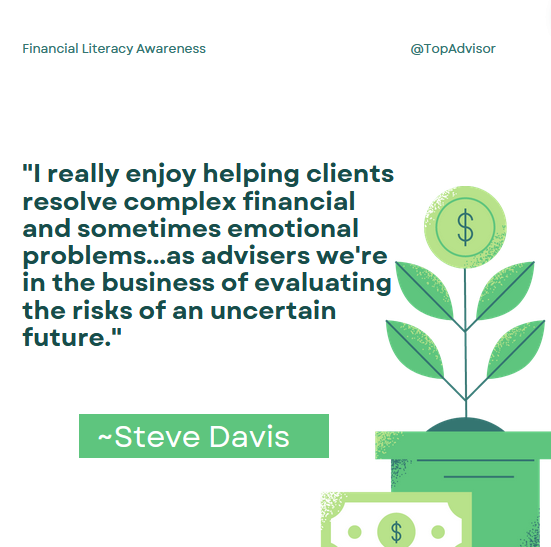Three Questions to Answer Before You Purchase Life Insurance
Life insurance can be an extremely important, even essential, part of your financial plan. One of its most attractive aspects for many individuals and families is the death benefit of the policy-the money that the insurance company pays out in the event of the insured’s death.
But navigating the life insurance landscape can be tricky-and people often make costly mistakes. Three of the biggest we see regularly:
- Buying too much-or too little-insurance-insurance due to a lack of understanding of their true financial needs
- Paying for life insurance using a less-than-ideal method or executing that payment
- Misunderstanding life insurance’s purpose and the reasons for having it
In order to make smart life insurance decisions, there are three questions you need to ask yourself and answer.
Question #1: Why Might I Need Life Insurance?
Life insurance can be a very versatile tool, capable of replenishing an estate to cover various taxes as well as creating wealth.
That said, you may not need life insurance at all. Ultimately, there is only one reason to purchase life insurance: You lack the liquid financial resources needed to fill a financial gap if you were to die.
That gap might involve:
- Family: Consider the people you love, such as your children. You want to ensure they would have a solid financial base (however you define it) if you were to die. Very often the best answer is using life insurance to create to create an estate for them.
- Financial Obligations: Life insurance proceeds can be used to pay estate taxes, enabling children or other loved ones to keep wealth that would otherwise be paid to the government. Likewise, entrepreneurs regularly use life insurance to fund buy-sell agreements with business partners. This can help ensure their families will be properly taken care of. There are also circumstances in which you might owe a person or an institution and use life insurance as a form of collateral.
- Charitable Impact: Many people want to support worthwhile charitable causes so they can have an impact on the world-or a chunk of it, at least. Life insurance can be used to fulfill their commitments tot he philanthropic organizations they support.
Important: Be very clear about why you want life insurance. Carefully and critically think through the outcomes you are trying to achieve and the role life insurance might be able to play before you buy.
Question #2: How Much Life Insurance Do I Need?
Let’s say you determine that life insurance is something you need. It’s then time to turn to the matter of amount.
The answer to his question is based on your answer tot he first question. When you know the purpose of having a death benefit, it is possible to decide just how much life insurance you need to get.
Examples: Say you are looking to create a larger estate to ensure your family would be financially secure if your family died. A lot of factors can be considered to come up with an appropriate death benefit. How sophisticated you get depends on you (and any advisors you enlist for help). For example, you might create cash flow projections to determine how much money your family would need to pay for specific projected expenses (education, healthcare, etc.). By including projected investment returns into the calculations, you can arrive at the size of the death benefit your family would require to fund critical financial needs.
Or say you have a business you plan to pass on to your daughter. Although your son has different talents and interests, you still want to leave him an inheritance-and you want things to be “fair” for both. Life insurance can be used to equalized their inheritances. Based on the financial value of the business you will be leaving to your daughter, you can determine how much life insurance you will need in order to leave your son a comparable amount of assets.
The Upshot: Ascertaining how much insurance you require is fairly straightforward-but only once you are perfectly clear about why you need life insurance. Therefore, you should buy the amount of life insurance that matches your needs-and no more or less.
Question #3: How Should I Pay For My Life Insurance?
Once you know how much insurance you need, you can consider various ways to pay the premiums. Basically, there are four approaches to paying premiums:
- Pay the premiums out of pocket: The least complicated and most direct way to pay premiums is to write checks for them as the premium notices arrive.
- Have a third party pay the premiums: If you are an entrepreneur, your company might be the appropriate entity to pay the premiums. Similarly, grandparents can pay the premiums for their grandchildren. (Note: There are rules that need to be followed to enable third parties to pay life insurance premiums without adverse consequences.)
- Borrow the money to pay premiums: This approach is known as premium financing. There are a number of different ways to use loans to pay premiums, but expertise in this area is often a necessity to use loans successfully.
- Leverage your retirement plan to pay premiums: Business owners may be able to use funds in a qualified retirement plan to buy life insurance. A nice benefit is that pretax dollars are used to pay premiums. However, the IRS will consider the pure cost of life insurance protection provided under the plan to be an economic benefit that is taxable income to the client.*
Which one works best depends on a wide variety of factors. But the first step is to understand that you do have options to consider-don’t let anyone tell you there is only one method.
*Disclosure: A tax professional should be consulted on this matter.
ACKNOWLEDGMENT: This article was published by the BSW Inner Circle, a global financial concierge group working with affluent individuals and families and is distributed with its permission. Copyright 2019 by AES Nation, LLC.









0 comments